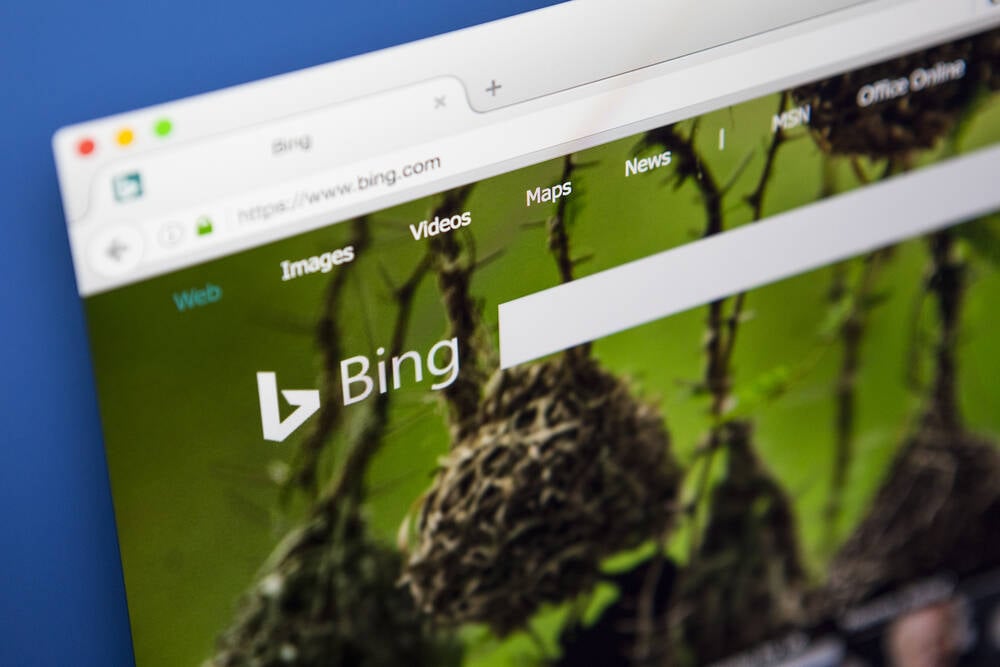It looks like Microsoft has come up with a new trick to keep those who accidentally end up on Bing from leaving for Google: Simply mimic the look of Google’s homepage and hope no one will notice.
Visitors to Bing.com who conduct a search for ‘Google’ while not signed into their Microsoft accounts might notice something strange when they hit enter, as demonstrated in the video below captured by The Register. Not only does the screen look suspiciously like a Google doodle, complete with a mostly blank white screen, a search bar, and some text beneath it, but the usual top bar that shows Bing’s usual search bar and various ways to filter results is moved off the screen to add to the illusion.
Once the shift to hide the actual Bing bar is complete (the remaining search window is just another Bing search field, not a Google one), there’s no obvious Microsoft branding at first glance – just a small banner promoting its Rewards points as a reason to “choose Microsoft Bing.” Searches for other engines don’t return similar results, nor do any other search terms we tried.
In short, with everything else Microsoft has tried to do, failing to move Bing beyond a place people go to get to Google, it seems Redmond’s latest ploy may involve making Bing’s homepage look like Google’s to create familiarity or confusion.
Microsoft has been trying for a while to get people to ditch Google’s Chrome browser for its own replacement for Internet Explorer, Edge, and Google search for Bing search, naturally, with little success.
Edge has barely managed to move the needle on browser market share over Chrome in the past year despite trying tricks like putting Edge ads on the Google Chrome download page begging users not to ditch it, force-opening links in Edge instead of a user’s preferred browser and importing Chrome data without user permission.
Likewise for Bing, Microsoft has tried tricks like popping up advertisements for its own search engine over Chrome on Windows PCs, suggesting users make Bing their default Chrome search engine, in part to get access to GenAI-powered search results. These tricks haven’t worked either, with Bing still capturing less than four percent of the online search market.
Will this latest attempt – potentially misleading those who aren’t paying close attention – pay off? Probably not sizably. It’s also not clear whether Microsoft will reverse course with people beginning to take notice of the trick: We’ve asked, but haven’t heard back.
When asked for its take on the matter, Google responded by referring us to a post on X from Google’s VP and GM of Chrome, Parisa Tabriz, who called Microsoft out for the move.
“Imitation is the sincerest form of flattery, but Microsoft spoofing the Google homepage is another tactic in its long history of tricks to confuse users and limit choice,” Tabriz wrote. “New year; new low, @Microsoft.” ®
Editor’s note: This story was amended post-publication with Google’s response.

